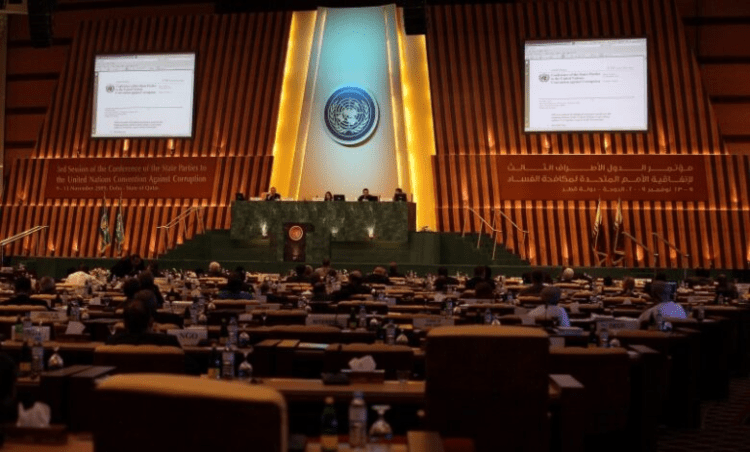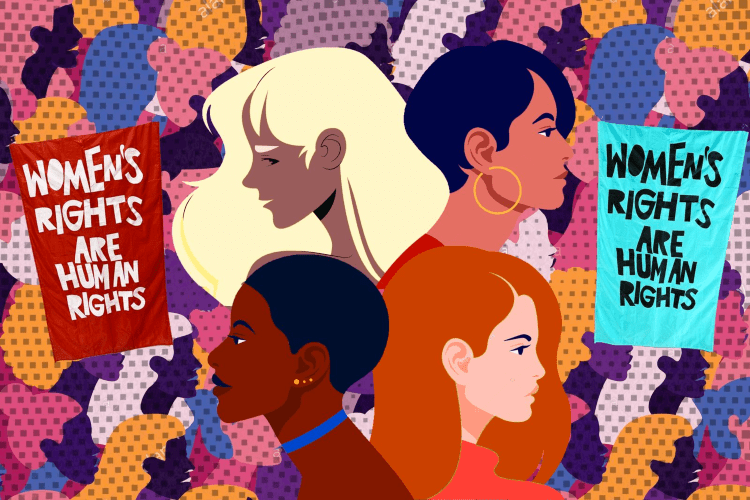Over the years, corruption has poisoned our societies, affecting a wide spectrum of people; it is a disease that prevents people from exercising their rights. Women, in particular, are the largest group directly affected by it in both public and commercial institutions.
Frequently marginalized and deprived of their legitimate rights, recently, they have started to rise up against this systematic injustice. Their tired voices should serve as a wake-up call to governments that choose to keep a blind eye to corruption and fail to effectively combat it.
In other news, Egypt has taken a few initiatives to tackle this epidemic and provide greater possibilities for women to exercise their rights without the limits that society places on them.
In recognition of its recent women’s rights legislations, Egypt will host the Conference of the States Parties to the United Nations Convention Against Corruption’s ninth session; this is the world’s largest event dedicated to preventing and combating corruption. The goal of this conference is to bring together member states, parliamentarians, international, regional, and non-governmental organizations (NGOs), civil society, and the commercial sector to examine corruption-related concerns.
The UN Convention Against Corruption, which is the sole enforceable, worldwide legal treaty that serves as an anti-corruption tool, will be reviewed at the conference.

So, how do women suffer as a result of corruption?
Recently, women have been acquiring more and more rights and empowering themselves in the Middle East as a result of their exceptional successes, which have allowed them to become CEOs, fashion designers, painters, and other professions.
However, before we can conclude that women have finally received the respect they deserve, we must first address some of the persisting challenges that they experience as a result of corruption
Gender norms and preconceptions might disproportionately affect women, resulting in more bribes being paid to get public services, violating human rights. This is a serious problem that affects not only Egypt but many other countries within the Middle East as well.
Furthermore, as partiality for hiring men grows, women confront a significant corruption issue in the employment process. Although both genders are affected by this problem, women are harmed more as a result of gender preconceptions that they may encounter in instances when employers perceive a woman as not being the ideal fit for a certain profession. This is, without a doubt, a sort of discrimination that women face on a daily basis. In addition, due to the underlying difficulties of corruption that women confront in obtaining proper public healthcare, their access to such services may be disrupted. They must either pay bribes or accept the fact that they will not have access to healthcare as a result of institutional corruption.

Not only that but also women are regularly exposed to monetary bribes or sexual favors in exchange for work or running a business, hindering their capacity to earn a living or keep their enterprise afloat.
So, how did we end up here? Why is corruption so prevalent in our cultures, and why does it disproportionately affect our mothers and sisters? The UN and other NGOs have made significant efforts to delve deeper into the core of this issue and to enact global laws and regulations that would put an end to this injustice. However, we are still a long way from having non-corrupt systems in our countries, and the first step, as with other global concerns, is to raise awareness and shine more light on the subject. Also, we should all band together to fight corruption, particularly the kind that disproportionately impacts women, and cease accepting actions that degrade women. Women have used a great deal of work to empower themselves and stand up against injustices that exist in every corner of the globe.



